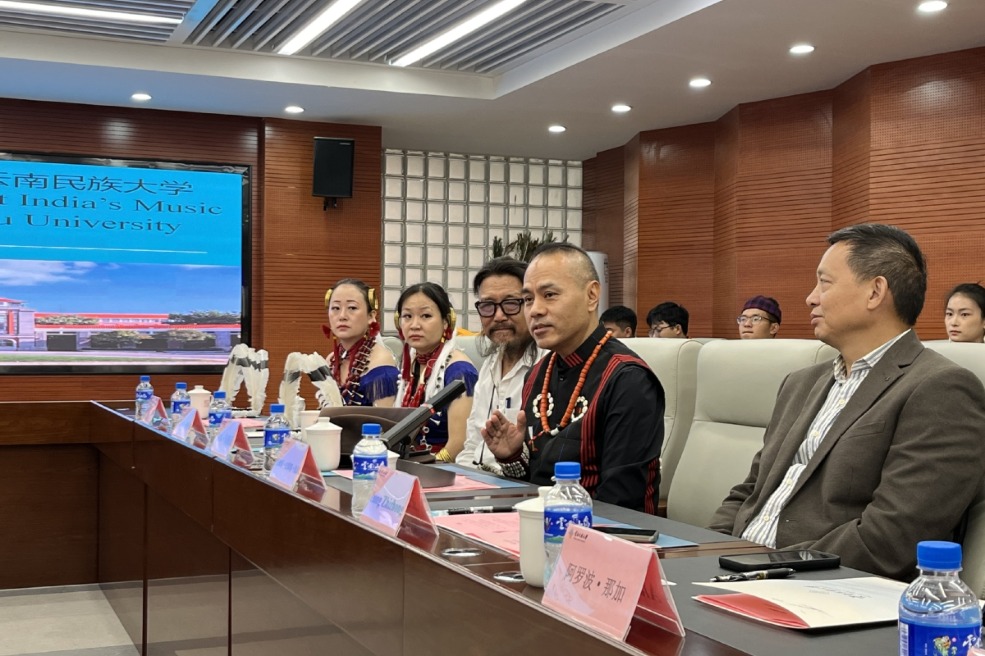US pursuing two-tiered trade policy with China


US Commerce Secretary Gina Raimondo on Wednesday acknowledged that the United States reaps huge benefits from trade with China and pledged not to decouple from it, with the exception of critical technology and other areas that Washington deems could "undermine" its national security.
In a speech that laid out a detailed strategy to outcompete China, the commerce chief said the US is looking to "aggressively" reform and bolster its export controls and investment screening regimes to counter China, particularly surrounding emerging and foundational technologies.
Raimondo's speech came about two weeks after a summit between US President Joe Biden and Chinese President Xi Jinping in Bali, Indonesia, where the leaders aimed to set the relationship on the right course and agreed that the two countries will work together to address various global challenges.
She stressed that the Biden administration isn't looking to sever economic ties with China, but to promote trade and investment.
"We are not seeking the decoupling of our economy from that of China's," she said. "We want to promote trade and investment in areas that do not threaten our core economic and national security interests or human rights values."
Raimondo said she has met with Huang Runqiu, China's minister of ecology and environment, proposing the two sides work together to reduce ocean pollution and marine plastic debris.
The bulk of her remarks at the Massachusetts Institute of Technology was about what she called the US' "economic competitiveness strategy" toward China, continuing a hawkish tone that China has accused of aiming to contain its development.
The four-component China strategy is in line with the "invest, align, compete" policy outlined by US Secretary of State Antony Blinken in May, and Raimondo added a fourth component: advocate trade and cooperation.
The United States benefits from annual trade exceeding $750 billion with China, an exponential growth from $4.7 billion in 1972. Exports to America's third-largest market directly support at least 750,000 American jobs among large and small industries, she said.
"This trade provides revenues for American companies, jobs for American workers, and connectivity with the Chinese people," she said. "The benefits from these exports go not only to our large multinationals but also to more than 25,000 small and medium-sized enterprises (SMEs) that exported $33 billion to China in 2020."
China is also the US' largest agricultural market, and farmers are on track to export $36 billion in agricultural goods to China this year, she added.
That compares with a $28 billion aid package the previous US administration provided farmers during the US-China trade conflict.
Still, Raimondo said that efforts to promote trade and investment must focus on areas that do not undermine US interests or values.
China's Foreign Ministry has noted the US has "overstretched?the concept of national security" to contain and even put a stranglehold on the development of high-tech industries in other countries.
Also on Wednesday, US Treasury Secretary Janet Yellen said that she expects there will continue to be "very strong" ties between China and the United States when it comes to "mutually beneficial" trade and investment.
"And this is not something that I think would be beneficial, either to the United States or to China or to the global economy, to see erode," she said at the New York Times DealBook Summit.
Gary Hufbauer, a senior fellow and trade expert at the Peterson Institute for International Economics in Washington, said the US commerce chief's China policy, taken together, represents a "mild charm offensive" by US officials — an attempt to limit decoupling to advanced technology goods and services.
"In my opinion, we have not yet seen the end of decoupling. But everything will depend on the strength of (US President Joe) Biden's resistance to the China hawks," Hufbauer told China Daily.
"Only by concrete decisions NOT to put controls on certain products will the US persuade China that decoupling is no longer the overriding US policy," he said.

































